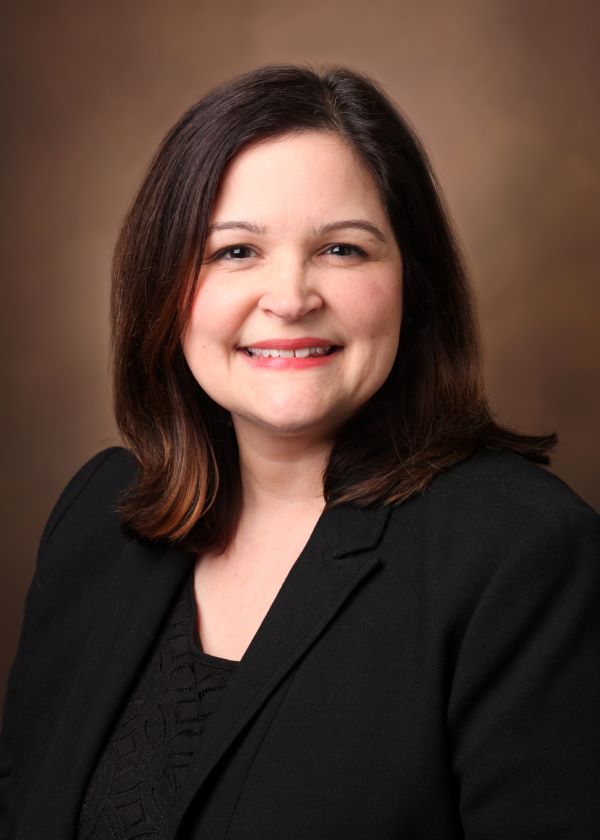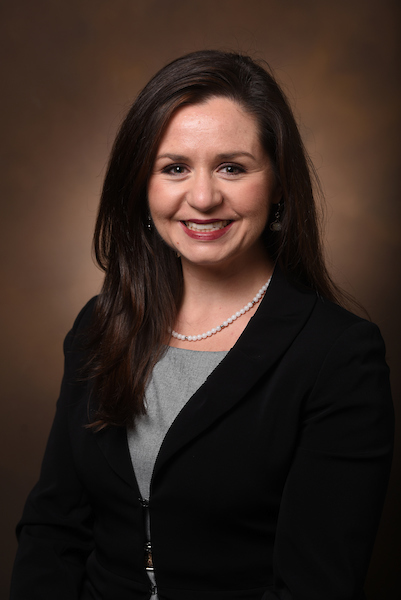Department of Medicine
Core Medicine Clerkship
The Core Medicine Clerkship serves as a focal point of the second-year Foundations in Clinical Care (FCC) educational experience in Vanderbilt's innovative medical curriculum. This clerkship is the backbone of a medical student’s training in medicine and offers the most extensive inpatient experience in the department. We value a robust academic experience, encourage innovation, and are committed to providing a supportive learning environment.
Internal Medicine combines the skills of problem-solving with a view of the patient as a whole person, understanding how health impacts one’s emotional and social well-being.
During this rotation, students will:
- Learn the breadth and diversity of diseases in adults
- Work alongside some the world’s foremost experts in their field
- Experience the intertwining of science and the art of medicine
- Expand their history and physical diagnosis skills
- Generate prioritized differential diagnoses
- Implement patient management strategies
At the conclusion of the Core Medicine Clerkship, the second-year medical student should be able to:
- Obtain and present a complete history and physical examination (oral and written) for patients in the inpatient setting. (PC1, IPCS1, IPCS3)
- Obtain and present a focused yet relevant medical history for a patient with ongoing care of a chronic disease or acute complaints present in the outpatient setting. (PC1, IPCS1, KP1)
- Demonstrate appropriate techniques for a complete physical exam, identifying and describing key findings. (PC1)
- Generate a prioritized problem list and differential diagnosis. (PC2b) (PC2, KP1, KP3)
- Develop treatment plans and interpret results including laboratory, imaging, and diagnostic studies appropriate for various acute and chronic clinical problems in Internal Medicine. (PC3, KP1, KP3)
- Apply basic clinical reasoning strategies, recognizing common biases in medical decision making. (PC2, KP1, KP3)
- Discuss underlying pathogenesis, epidemiology, and evidence-based medicine for commonly encountered medical conditions. (MK2b) (KP1, KP2, KP3, PBLI2, PLBI3)
- Seek out feedback from multiple observers and use this feedback to improve performance. (PBLI1, PBLI2)
- Communicate respectfully about and effectively with patients, families, and team members. (IPCS1, IPCS3, PR2, PR3, PR4)
- Demonstrate effective planning and appropriate communication for patient transitions of care. (PC3, IPCS1, IPCS3, SBP1, SBP2)
- Inpatient Activities
Each student will be assigned to inpatient teams during the first five weeks of the clerkship. Teams typically are made up of an attending, residents, medical students, and other healthcare professionals who provide a multi-disciplinary approach to patient care.
- Patient Care and Daily Rounds
Students are assigned to care for two to three new patients per week, with the goal of caring for at least 12-18 unique patients throughout the five-week inpatient portion of the clerkship.
On the patient’s day of admission, students thoroughly get to know their patient, review medical texts and/or literature, and write a history and physical. In the Department of Medicine, there is a strong emphasis on bedside teaching rounds. Students present all new and previously assigned patients on daily rounds and write progress notes (I.e., SOAP notes) in the electronic medical record. To prepare for team rounds, students typically “pre-round” each morning. This involves reviewing a patient’s course and developing an assessment and plan for the day.
Evidence-based patient care is highly valued. Students are granted graduated responsibilities for the care of their patients based on their personal progress within the clerkship. The Vanderbilt School of Medicine Learning Platform, VSTAR Learn provides materials to assist with oral and written presentations. Vanderbilt University Medical Center Residents or Attendings provide supportive supervision in all aspects of patient care. While exceptional patient care is always the primary focus, educating tomorrow’s leaders is central to our department’s mission.
- Call
Most services admit new patients on a cycle of three out of every four days. Residents assign patients to keep pace with two to three new patient evaluations per week. Every patient admitted to a medicine service has many learning opportunities; as such, students experience a combination of bread-and-butter cases and less common disease processes. There is no overnight call. However, students do have the option to volunteer for overnight calls with the night-float team.
- Procedures
Vanderbilt medical students are encouraged to become proficient with basic medical procedures such as nasogastric tube, IVs, ABGs, Foley catheters, and blood cultures. Supervising physicians may also allow and assist with more advanced procedures such as lumbar puncture, paracentesis, and thoracentesis as opportunities arise.
- Outpatient activities
Each student will spend three weeks of the clerkship in the ambulatory setting, assigned to clinics for both general and subspecialty medicine. This portion of the rotation will involve spending time alongside experienced Internal Medicine and Internal Medicine subspecialty clinicians.
While in the outpatient setting, students will also spend time with many members of the medical care team, including pharmacists, dieticians, clinical pharmacy nurses, case managers, and others to better appreciate the multidisciplinary care needed to address medical comorbidities, medication adherence, psychosocial issues that are pertinent to continuous care of patients.
- Additional learning
Learning opportunities in the Internal Medicine Clerkship primarily involve direct patient care opportunities. This is augmented by other learning including: Master Clinical Teacher observations, Objective Structured Clinical Examination (OSCE), Clerkship didactics, Department of Medicine Grand Rounds, and Student Morning Report.
- Master Clinical Teachers
Medical students will participate in three to four sessions with a Master Clinical Teacher. These experiences place students alongside an experienced Internal Medicine faculty member with exceptional bedside teaching skills. Observations on history and physical examinations along with direct bedside feedback on exam techniques, clinical reasoning skills, communication skills, differential diagnoses development, and diagnostic plans are emphasized. The Internal Medicine Master Clinical Teachers are Kaylin Craig, Rachel Apple, and Ben Womack.
- Objective structured clinical examination
Students will participate in one to two structured clinical examination scenarios throughout the clerkship experience. This will occur in Vanderbilt School of Medicine’s state of the art Center for Experiential Learning and Assessment (CELA)
Following each, students will receive detailed feedback on their encounter.
For clerkship students
Chief resident and faculty lecture series (Mondays and Fridays 12-1 p.m.) Faculty members and chief residents provide interactive lectures on common topics in Internal Medicine, H&P sessions, and Clinical Reasoning.
"Chalk Talk" conference (Thursdays 12-1 p.m.) Interactive talks led by Internal Medicine Residents covering valuable topics in Internal Medicine
Harrison Service teaching conference (Monday/Wednesday/Friday 7:30-8:30 a.m.) Students on Harrison Service (cardiology) attend teaching conferences on topics including management of Heart Failure, ACS (Acute Coronary Syndrome), and ECGs.
Student case report (Tuesday 12-1 p.m.) A student-led morning report style conference. Two to three cases will be presented in small groups with a faculty member facilitating discussion. The student presenting is asked to bring relevant or interesting imaging, ECGs, and any other parts of the diagnostic work-ups relevant to the case. The leading student, with assistance from faculty, will walk the group through aspects of the case, including the diagnostic framework used, the development of the differential diagnoses, and an evidence-based plan of care. The student will then lead a short “teaching opportunity discussion” on key findings in the case.
VA physical diagnosis rounds: Students working at the VA round with Dr. John Sergent at the bedside of patients for an hour to learn physical exam findings and discuss patient care management.
For students and residents
Internal Medicine Morning Report (Monday, Wednesday, Friday 7:30-8:30 a.m.) Students on all VUH (Vanderbilt University Hospital) and VA inpatient services (except for Harrison’s Cardiology service) attend morning reports at each assigned hospital.
Resident Chalk Talk and lecture series (Thursday 12-1 p.m.) Students will attend if no clerkship didactic is scheduled at the same time.
Residents’ conference (Monday and Friday 12-1 p.m.) Chief residents present unknown cases to attendings, residents, and students rotating at the VU and VA hospitals. Students are expected to attend if no other clerkship didactics are scheduled.
Medicine Grand Rounds (Thursdays 8-9 a.m.) Medicine Grand Rounds are comprised of weekly presentations by faculty in one of the department’s 13 divisions, as well as by members of the Harrison Society and Neilson Society. Division-specific endowed lectureships are also presented by invited lecturers from top academic institutions throughout the country.
The supervising resident is expected to:
- Orient the students regarding expectations and the setting of the wards
- Know the goals and objectives for the course and the responsibilities of students.
- Remain available to the medical students for any questions
- Assign patients to the student (2 to 3 new patients per week), understanding that every patient offers a tremendous opportunity for growth. Assigned patients can include overnight admissions (already seen by the overnight time) and ICU (Intensive Care Unit) transfers
- Review all relevant physical findings and lab data and discuss the student's patient cases with the student
- Guide students in their reading and thinking about their patient's problems and solutions
- Coach students in preparing their H&P and daily S.O.A.P. write-ups.
- Review at least one of the student’s write-ups per week
- Provide instruction to students (bedside teaching, papers, talks, etc...)
- Teach students how to write orders and provide them with opportunities to write orders
- Supervise students with procedures
- Provide students with ongoing (formative) feedback day-to-day and intentionally setting aside time for feedback at mid-rotation (formative) and end-rotation (summative).
- Timely completion (within one week) of any evaluations that students ask you to complete. Please provide at least 3 areas of strength and 3 opportunities for growth (be specific and actionable).
- Work with students to identify one day off each week. If there is a day that the team is not admitting, this would be a preferred day.
The attending physician is expected to:
- Orient the students regarding expectations and the setting of the wards
- Know the goals and objectives for the course and the responsibilities of students
- Remain available to the medical students for any questions
- Review physical findings and notes with the student
- Provide students with ongoing (formative) feedback day-to-day and intentionally setting aside time for feedback at mid-rotation (formative) and end-rotation (summative)
- Provide instruction to students (bedside teaching, papers, talks, etc...)
- If desired, assign students to give a talk for attending rounds and provide them ample time and guidance in preparing the topic
Contact the course director immediately with any concerns of patient performance across any of the competencies, including knowledge, patient care, and professionalism
Timely completion (within one week) of any evaluations that students ask you to complete. Please provide at least 3 areas of strength and three opportunities for growth (be specific and actionable)
Clerkship Director: Nanette Dendy, MD
Program Leadership:
Heather Ridinger, MD
Associate Clerkship Director
heather.a.ridinger@vumc.org
Rachel Apple, MD, MPH
Master Clinical Teacher
rachel.apple@vumc.org
Benjamin D. Womack, MD
Master Clinical Teacher
benjamin.womack@vumc.org
Kate Wooldridge, MD
Master Clinical Teacher
kathleene.t.wooldridge@vumc.org
Core Faculty:
Kevin Hageman, MD
kevin.d.hageman@vumc.org
Rachel Wolf, MD
rachel.b.wolf@vumc.org
Nicholas Herrera, MD
nicholas.herrera@vumc.org
Dr. Chase Webber, DO
chase.j.webber@vumc.org
Reed Sparta, Program Manager
Phone: 615-343-6657
Fax: 615-343-4466
Email: reed.sparta@vumc.org
Program Leadership

Nanette Dendy, MD
Clerkship Director
Associate Professor of Clinical Medicine

Heather Ridinger, MD
Associate Clerkship Director
Associate Professor of Medicine
